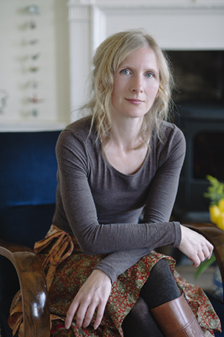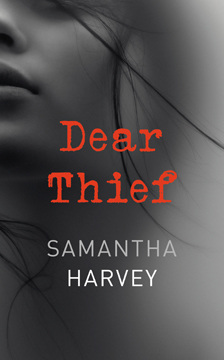Let the reader in
by Samantha HarveyI only have one tip for writing that I feel strongly about, and that is to write something that allows space for the reader. The reader is a living, breathing presence in the novel – not a particular reader for whose tastes you must write, but a notional one: a mind that lives among your words.
The reader’s mind needs room to make its own discoveries and interpretations. Novels that don’t work for me are ones that lead me by the scruff of the neck and say ‘look’ and ‘hear this’ and ‘get this?’ and ‘in case you didn’t get it, here it is again’. Novels that work are those that fuel me to say ‘look!’ and ‘I hear something’ and ‘I get something, I feel something’.
A novel is an abstract thing; it isn’t complete until it’s been read and interpreted, and until then it’s only half a thing. The reader does a large amount of the work, and this is what gives novels (all art forms, I think) the capacity to be both universal and personal at once. If a novel has 20,000 readers it’s completed 20,000 times, and if it’s a great novel these 20,000 interpretations will reverberate through the reader’s mind and heart and give the novel 20,000 afterlives.
Chekhov’s famous advice goes: “Don’t tell me the moon is shining, show me the glint of light on broken glass.” Why? Because ‘the moon is shining’ is an airless fact, where the glint of light on broken glass generates atmosphere, and atmosphere is needed if you want your reader to live and breathe among your words. A good novel is, I think, spacious, generous and open-ended – an oxygenated place, fit for all kinds of human life, all kinds of feelings and thoughts that flourish between the lines. Readers live between the lines; no matter how tempting, no matter how much you want to control your story and drive your meanings home, leave these spaces open.
 Samantha Harvey’s first novel The Wilderness (2010), a mesmerising portrait of a disintegrating mind, won the Betty Trask Prize, was longlisted for the Man Booker Prize, and shortlisted for the Orange Prize for Fiction and for the Guardian First Book Prize. Her second novel, All is Song (2012) is a profound exploration of family ties and moral choice. Both are now published in paperback by Vintage. Her latest, Dear Thief, slowly unravels an old betrayal, and dissects the remnants of a friendship caught between hatred and love, and is out now from Jonathan Cape. She lives in Bath and teaches at Bath Spa University, where she completed an MA in Creative Writing in 2005. Read more.
Samantha Harvey’s first novel The Wilderness (2010), a mesmerising portrait of a disintegrating mind, won the Betty Trask Prize, was longlisted for the Man Booker Prize, and shortlisted for the Orange Prize for Fiction and for the Guardian First Book Prize. Her second novel, All is Song (2012) is a profound exploration of family ties and moral choice. Both are now published in paperback by Vintage. Her latest, Dear Thief, slowly unravels an old betrayal, and dissects the remnants of a friendship caught between hatred and love, and is out now from Jonathan Cape. She lives in Bath and teaches at Bath Spa University, where she completed an MA in Creative Writing in 2005. Read more.
samanthaharvey.com
Author portrait © Matt Lincoln


